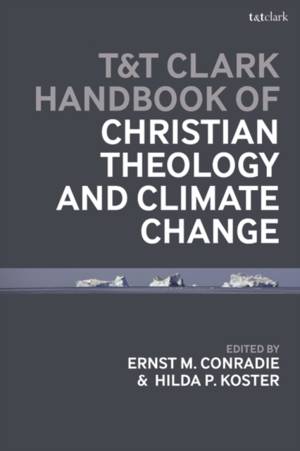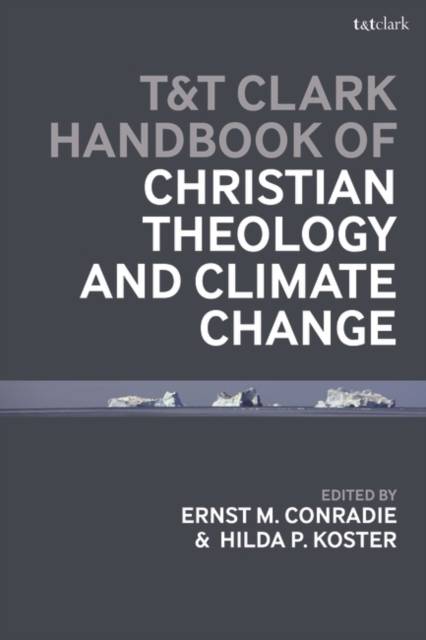
- Afhalen na 1 uur in een winkel met voorraad
- Gratis thuislevering in België vanaf € 30
- Ruim aanbod met 7 miljoen producten
- Afhalen na 1 uur in een winkel met voorraad
- Gratis thuislevering in België vanaf € 30
- Ruim aanbod met 7 miljoen producten
Zoeken
T&T Clark Handbook of Christian Theology and Climate Change
€ 415,95
+ 831 punten
Omschrijving
The T&T Clark Handbook of Christian Theology and Climate Change entails a wide-ranging conversation between Christian theology and various other discourses on climate change. Given the far-reaching complicity of "North Atlantic Christianity" in anthropogenic climate change, the question is whether it can still collaborate with and contribute to ongoing mitigation and adaptation efforts. The main essays in this volume are written by leading scholars from within North Atlantic Christianity and addressed primarily to readers in the same context; these essays are critically engaged by respondents situated in other geographic regions, minority communities, non-Christian traditions, or non-theological disciplines.
Structured in seven main parts, the handbook explores: 1) the need for collaboration with disciplines outside of Christian theology to address climate change; 2) the need to find common moral ground for such collaboration; 3) the difficulties posed by collaborating with other Christian traditions from within; 4) the questions that emerge from such collaboration for understanding the story of God's work; and 5) God's identity and character; 6) the implications of such collaboration for ecclesial praxis; and 7) concluding reflections examining whether this volume does justice to issues of race, gender, class, other animals, religious diversity, geographical divides and carbon mitigation.
This rich ecumenical, cross-cultural conversation provides a comprehensive and in-depth engagement with the theological and moral challenges raised by anthropogenic climate change.
Structured in seven main parts, the handbook explores: 1) the need for collaboration with disciplines outside of Christian theology to address climate change; 2) the need to find common moral ground for such collaboration; 3) the difficulties posed by collaborating with other Christian traditions from within; 4) the questions that emerge from such collaboration for understanding the story of God's work; and 5) God's identity and character; 6) the implications of such collaboration for ecclesial praxis; and 7) concluding reflections examining whether this volume does justice to issues of race, gender, class, other animals, religious diversity, geographical divides and carbon mitigation.
This rich ecumenical, cross-cultural conversation provides a comprehensive and in-depth engagement with the theological and moral challenges raised by anthropogenic climate change.
Specificaties
Betrokkenen
- Uitgeverij:
Inhoud
- Aantal bladzijden:
- 728
- Taal:
- Engels
- Reeks:
Eigenschappen
- Productcode (EAN):
- 9780567675156
- Verschijningsdatum:
- 12/12/2019
- Uitvoering:
- Hardcover
- Formaat:
- Genaaid
- Afmetingen:
- 156 mm x 234 mm
- Gewicht:
- 1188 g

Alleen bij Standaard Boekhandel
+ 831 punten op je klantenkaart van Standaard Boekhandel
Beoordelingen
We publiceren alleen reviews die voldoen aan de voorwaarden voor reviews. Bekijk onze voorwaarden voor reviews.







